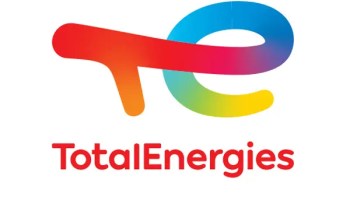The Nigerian National Petroleum Company (NNPC) Limited yesterday, Wednesday stated that the country now produced 1.59 million barrels per day just as it also confirmed that the actual crude oil loss monthly still remains at 700,000 barrels per day.
The volume of crude oil recovery is expected to increase when the partially restored Trans Niger Pipeline (TNP) is completed and Bonny Terminal re- opened for business very soon.
Bala Wunti, Chief Upstream Investment Officer of the NNPC Upstream Investment Management Services (NUIMS), disclosed this on the Arise Television program on Wednesday Morning, stating further that the collaboration between the security agencies, local community contractors, regulators, oil-producing communities, NNPC and other stakeholders has helped to achieve this.
“It was the collaborative efforts of the stakeholders that have led to the impressive result that the country is getting from the return of the trans forcados pipeline where at least between 350,000 and 400,000 barrels of crude oil is now pumped to the t export terminal.”
Talking of what the country is actually losing at the moment, he said: “There are different losses which are categorised into three. In the hydrocarbon accounting algorism, there are three types of losses. There is what is called engineering losses which is usually what is accepted by material balance, this usually ranges from point 0.1 to 0.5. Nobody accounts for this, as it is part and parcel of the engineering process.”
“The second type of losses are those that you produce the hydrocarbon but the hydrocarbon is stolen by vandals and oil thieves, these are called action losses.
The third type of loss is what is called opportunity loss. This opportunity loss is a result that the country and other stakeholders are unable to produce what they plan to produce.”
“You are correct to have reported that the budget is anchored on a production estimate of 1.88million per day production and this means that if as also reported at one time in August, we are recording barely about one million barrels per day, it means the different between 1.8 and 1 million barrel is what the country is losing. This what the treasury see.”
He explained that based on all the calculations, Nigeria was losing, on average, over 700,000 barrels per day.
“The discrepancy in crude oil losses reporting is in whether they are opportunity, action or engineering losses.”
According to him, Brass and Bonny, which were shut down due to force majeure, were expected to begin operation soon, stating further that with the return of Forcados and partial restoration of the Trans Niger Pipeline (TNP), Nigeria’s oil production had hit 1.59 million barrels per day (mbpd), as at Wednesday morning.
The NNPC chief said before the recent recovery, Nigeria was losing about 21 million barrels per month and up to $1.9 billion every 30 days.
He said: “If you take an average oil price of $90, that will translate to somewhere in the neighbourhood of $1.9 billion losses that we suffered.”
At least 68 vessels had been impounded since the renewed fight against crude oil theft, while some of the culprits are being prosecuted by the appropriate authorities, he said.
He pointed out that while the Trans Niger Pipeline (TNP) was yet to fully return, it had now been partially restored, leading to the increase in reported production figures.
“Forcados is back, Bonny will soon be back,” he reiterated.
On what changed in the security architecture of the industry, he said , before now the industry was using technology sub-optimally, which made it very difficult to have an end-to-end visibility of NNPC’s infrastructure. But with the renewed war against crude oil theft, NNPC now has the capability to see its assets fully from end-to-end, and about 70 percent of identified illegal refineries have been deactivated.
“The new security architecture relies on technology. What it does is to bring together the security and intelligence agencies on one table, the regulators on the other, and then bring in the community into the other angle and without the community, we can’t achieve that.
“It is just mind-boggling what we have discovered and we could see the level of sophistication where illegal connections were put on our trunk lines,” he stated, describing it as a very complex situation.
He stated that there were several layers of security protecting the country’s oil infrastructure, explaining that every level is now monitored by other levels to check underhand dealings.
As crude theft increased, the Federal Government and some private security groups, including Tantita Securities Service, owned by Government Ekpemupolo, also known as Tompolo, Pipeline Infrastructure Nigeria Limited (PINL), and Maton Engineering Limited, were contracted by the government.
“Today, we are able to detect and we able to respond. The success that we recorded is essential because of this improved security situation. We are now almost at an average of 350,000 to 400,000 bpd increase. At a certain level we recorded up to 450,000 bpd increase.
He assured that the collective resolve of private and government securities would lead to further improvement in crude oil production, which would, in turn, reflect in foreign exchange earnings by the country.
According to him currently, about 638 illegal refineries, out of 763, have been destroyed, even as the security architecture is being institutionalised.
Wunti said, “We have incapacitated almost about 70 percent of what we have identified and we will keep identifying some of them. It is mind-boggling what we discovered even as operators and every one of us saw the kind of sophistication, where illegal connections are put on every major trunk line, including direct export lines on Forcados.
“It couldn’t have been possible without the collective resolve of the private security guards anchored by the communities. We have short to medium and long term visibility. I can tell you we have succeeded to an extent to stop this menace.
“The question now is how to stop its growth. That is why we introduced checking the checker. What that means is that we have four layers of visibility.”
Wunti also said persons arrested in connection with the criminal oil theft and bunkering activities were currently being prosecuted. He said in due course, their identities would be disclosed to the surprise of Nigerians.
He said, “And the new security architecture was anchored on basically on rectangular architecture layered on technology. It brings together the security and intelligence agency at one angle, the regulators at another angle, the operators at another angle, and then brings in what was almost zero – the community – into the other angle, and without the community you can’t achieve that.
“That is just the innovation and we layered it on a technology – Command and Control Centre. I’m glad this media house has visited that Command and Control Centre. Today, we have end-to-end visibility, we are able to detect, we are able to deter and we are able to respond.
“We are still making a lot of improvement and that’s what you call the 3DR: we first detect, we deactivate, and we destroy and then we remove.”
Olusola Bello





